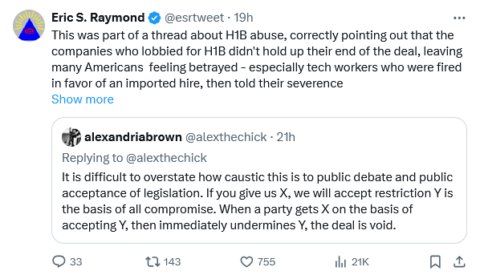 As we’ve seen, there had always been non-Romans fighting alongside Roman citizens in the army, for as long as we have reliable records to judge the point. In the Republic (until the 80s BC) these had consisted mostly of the socii, Rome’s Italian allies. These were supplemented by troops from whatever allies Rome might have at the time, but there was a key difference in that the socii were integrated permanently into the Roman army’s structure, with an established place in the “org. chart”, compared to the forces of allies who might fight under their own leaders with an ad hoc relationship to the Roman army they were fighting with. The end of the Social War (91-87BC) brought the Italians into the Roman citizen body and thus their soldiers into the legions themselves; it marked the effective end of the socii system, which hadn’t been expanded outside of Italy in any case.
As we’ve seen, there had always been non-Romans fighting alongside Roman citizens in the army, for as long as we have reliable records to judge the point. In the Republic (until the 80s BC) these had consisted mostly of the socii, Rome’s Italian allies. These were supplemented by troops from whatever allies Rome might have at the time, but there was a key difference in that the socii were integrated permanently into the Roman army’s structure, with an established place in the “org. chart”, compared to the forces of allies who might fight under their own leaders with an ad hoc relationship to the Roman army they were fighting with. The end of the Social War (91-87BC) brought the Italians into the Roman citizen body and thus their soldiers into the legions themselves; it marked the effective end of the socii system, which hadn’t been expanded outside of Italy in any case.
But almost immediately we see the emergence of a new system for incorporating non-Romans, this time provincial non-Romans, into the Roman army. These troops, called auxilia (literally, “helpers”) first appear in the Civil Wars, particularly with Caesar‘s heavy reliance on Gallic cavalry to support his legions (which at this time seem not to have featured their own integrated cavalry support, as they had earlier in the republic and as they would later in the empire). The system is at this point very ad hoc and the auxiliaries here are a fairly small part of Roman armies. But when Augustus sets out to institutionalize and stabilize the Roman army after the Battle of Actium (31BC) and the end of the civil wars, the auxilia emerge as a permanent, institutional part of the Roman army. Clearly, they were vastly expanded; by 23 AD they made up half of the total strength of the Roman army (Tac. Ann. 4.5) a rough equivalence that seems to persist at least as far as the Constitutio Antoniniana in 212.
Of course it was no particular new thing for the Romans to attempt to use their imperial subjects as part of their army. The Achaemenid army had incorporated a bewildering array of subject peoples with their own distinctive fighting styles, a fact that Achaemenid rulers liked to commemorate […] The Seleucid army at Magnesia (189) which the Romans defeated also had numerous non-Macedonian supporting troops: Cappadocians, Galatians, Carians, Cilicians, Illyrians, Dahae, Mysians, Arabs, Cyrtians and Elamites. At Raphia (217) the Ptolemaic army incorporated Egyptian troops into the phalanx for the first time, but also included Cretans, Greek mercenaries, Thracians, Gauls and Libyans, inter alia. Most empires try to do this.
The difference here is the relative performance that Rome gets out of these subject-troops (both the socii and the auxilia). Take those examples. Quite a number of the ethnicities on Xerxes monument both served in the armies of Darius III fighting against Alexander but then swiftly switched sides to Alexander after he won the battles – the Ionians, Egypt, and Babylon greeted Alexander as a liberator (at least initially) which is part of why the Achaemenid Empire could crumble so fast so long as Alexander kept winning battles. Apart from Tyre and Gaza, the tough sieges and guerilla resistance didn’t start until he reached the Persian homeland. The auxiliaries in the Seleucid army at Magnesia famously fell apart under pressure, whereas the Roman socii stuck in the fight as well as the legions; our sources give us no sense at any point that the socii were ever meaningfully weaker fighters than the legions (if anything, Livy sometimes represents them as more spirited, though he has an agenda here, as discussed). And the Ptolemaic decision to arm their Egyptian troops in the Macedonian manner won the battle (turns out, Egyptians could fight just as well as Greeks and Macedonians with the right organization and training) but their subsequent apparent decision not to pay or respect those troops as well as their Macedonians seems to have led quite directly to the “Great Revolt” which crippled the kingdom (there is some scholarly argument about this last point, but while I think Polybius’ pro-Greek, anti-Egyptian bias creeps in to his analysis, he is fundamentally right to see the connection (Plb. 5.107). Polybius thinks it was foolish to arm non-Greeks, but the solution here to saving the Ptolemaic kingdom would have been arming the Egyptians and then incorporating them into the system of rule rather than attempting to keep up the ethnic hierarchy with a now-armed, angry and underpaid underclass. The Greek-speakers-only-club system of Ptolemaic rule was unsustainable in either case, especially with Rome on the horizon).
By contrast, the auxilia were mostly very reliable. The one major exception comes from 69 AD – the “Year of the Four Emperors” to give some sense of its chaos – when the Batavian chieftain Julius Civilis (himself an auxiliary veteran and a Roman citizen) revolted and brought one ala and eight cohorts drawn from the Batavi (probably around 4,500 men or so) with him, out of an empire-wide total of c. 150,000 auxilia (so maybe something like 3.3% of the total auxilia). Indeed, the legions had worse mutinies – the mutiny on the Rhine (Tac. Ann. 1.16ff in 14AD) had involved six legions (c. 30,000 troops, nearly a quarter of Rome’s 25 legions at the time). This despite the fact that the auxilia were often deployed away from the legions, sometimes in their own forts (you’ll see older works of scholarship suggest that the auxilia were kept logistically dependent on the legions, but more recent archaeology on exactly where they were has tended to push against this view). Indeed, the auxilia were often the only military forces (albeit in small detachments) in the otherwise demilitarized “senatorial” provinces (which comprised most of the wealthy, populous “core” of the empire); they could be trusted with the job, provided they weren’t the only forces in their own home provinces (and after 69, they never were). And the auxilia fought hard and quite well. The Romans occasionally won battles with nothing but the auxilia, was with the Battle of Mons Graupius (83 AD, Tac. Agricola 35ff) where the legions were held in reserve and never committed, the auxilia winning the battle effectively on their own. Viewers of the Column of Trajan’s spiral frieze have long noted that the auxilia on the monument (the troop-types are recognizable by their equipment) do most of the fighting, while the legions mostly perform support and combat engineering tasks. We aren’t well informed about the training the auxilia went through, but what we do know points to long-service professionals who were drilled every bit as hard as the famously well-drilled legions. Consequently, they had exactly the sort of professional cohesion that we’ve already discussed.
Why this difference in effectiveness and reliability? The answer is to be found in the difference in the terms under which they served. Rather than being treated as the disposable native auxiliaries of other empires, the Romans acted like the auxilia mattered … because they did.
First of all, the auxilia were paid. Our evidence here is imperfect and still much argued about, but it seems that auxilia were paid 5/6ths of the wages of the legionary counterparts, with the cavalry auxilia actually paid more than the infantry legionaries. While it might sound frustrating to be systematically paid 1/6th less than your legionary equivalent, the legions were paid fairly well. The auxilia probably made in wages about as much as a normal day-laborer, but the wage was guaranteed (something very much not the case for civilian laborers) and while the cost of their rations was deducted from their pay, that deduction was a fixed amount that seems to have been set substantially below the market value of their rations, building in another subsidy. Most auxiliaries seem to have been volunteers, because the deal in being an auxiliary was good enough to attract volunteers looking to serve a full tour of duty (around 20 years; this was a long-service professional army now so joining it meant making a career out of it).
And most importantly, eventually (perhaps under Tiberius or shortly thereafter) the auxilia began to receive a special grant of citizenship on finishing that tour of duty, one which covered the soldier, and any children he might have had by his subsequent spouse (including children had, it seems, before he left the army; Roman soldiers in this period were legally barred from contracting legal marriages while serving, so the grant is framed so that it retroactively legitimizes any children produced in a quasi-marriage when the tour of service is completed). Consequently, whereas a soldier being dragooned or hired as a mercenary into other multi-ethnic imperial armies might end his service and go back to being an oppressed subject, the Roman auxiliary, by virtue of his service, became Roman and thus essentially joined the ruling class at least in ethnic status. Auxiliaries also clearly got a share of the loot when offensive warfare happened and while there is a lot of debate as to if they also received the praemia (the large retirement bonus legionaries got), epigraphically it is pretty clear that auxiliaries who were careful with their money could establish themselves fairly well after their service. I should also note that what we see of auxiliaries suggests they were generally well armed (with some exceptions, which may have more to do with stereotyped depictions of certain kinds of “barbarians” than anything else): metal helmets, mail shirts (an expensive and high quality armor for the period), oval shields, a spear and the spatha – a Roman version of the classic Gallic one-handed cutting sword – are the standard visual indicator in Roman artwork for generic “auxiliaries”. That is actually a fairly high-end kit; it is no surprise that the auxilia could win battles with it.
The attentive should already be noting many of the components of the old socii system now in a new form: the non-Roman troops serve under similar conditions with the Romans, get similar pay and rations (forts occupied by the auxilia show no deviation from the standard Roman military diet), a share of loot and glory and can finally be rewarded for loyal service by being inducted into the Roman citizen body itself (which could mean their sons might well enroll in the legions, a thing which does seem to have happened, as we do see a fair bit of evidence for “military families” over multiple generations).
(For those looking for more detail on the auxilia, a lot of this is drawn from a book I have already recommended, Ian Haynes, Blood of the Provinces: The Roman auxilia and the Making of Provincial Society from Augustus to the Severans (2013). Also still useful for the history of the development of the auxilia is D.B. Saddington, The Development of the Roman auxiliary Forces from Caesar to Vespasian (1982); this is, alas, not an easy book to find as it is – to my knowledge – long out of print, but your library may be able to track down a copy.)
Bret Devereaux, “Collections: The Queen’s Latin or Who Were the Romans, Part V: Saving and Losing and Empire”, A Collection of Unmitigated Pedantry, 2021-07-30.









